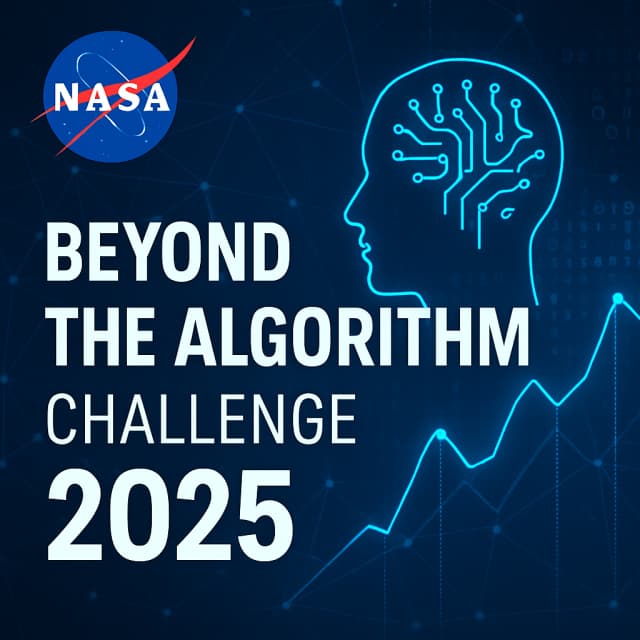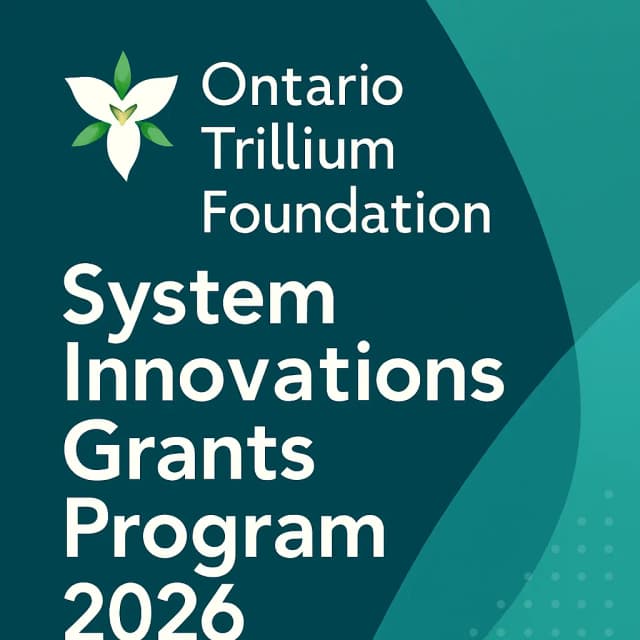NASA Beyond the Algorithm Challenge 2025
The NASA Earth Science Technology Office (ESTO) invites applications for the NASA Beyond the Algorithm Challenge 2025. This challenge seeks innovative solutions to complex Earth Science problems using transformative or unconventional computing technologies such as quantum computing, quantum machine learning, neuromorphic computing, or in-memory computing.
🌍 About the Challenge
Breakthrough computing methods hold the potential to overcome the limitations of conventional computing in terms of processing power, efficiency, and performance. These methods could revolutionize various aspects of American life, including rapid flood analysis, which is critical for personal safety, land use planning, infrastructure resilience, and disaster preparedness.
The Challenge
Participants are tasked with:
- Providing solutions or potential solutions to improve flood water analysis using one or more unconventional computing methods.
Key Steps for Participants
- Choose an audience for your solution.
- Define a problem statement and propose a solution tailored to your audience's needs for rapid flood analysis.
- Select and define a non-conventional computing method (e.g., quantum computing, neuromorphic computing) or a hybrid approach with traditional computing to test your solution.
- Align your design and output with the judging criteria, considering available data for testing.
- Submit a 5-page White Paper and a 2-3 minute video explaining your approach.
🏆 Benefits of Participating
Participants in the NASA Beyond the Algorithm Challenge will gain the following benefits:
- Cash Prizes: Up to three winners will receive $100,000 each.
- Community Impact: Contribute to disaster preparedness, recovery, and resilience by improving flood management.
- Environmental Stewardship: Play a role in sustainability efforts by analyzing flood occurrences.
- Interdisciplinary Learning: Gain experience in fields like ecology, meteorology, geography, public policy, and engineering.
- Personal Growth and Leadership: Develop leadership skills and tackle complex environmental challenges.
- Networking Opportunities: Collaborate with NASA, government agencies, non-profits, and private entities.
- Cross-Applicability: Apply unconventional computing methods to various contexts beyond flood analysis.
📋 Eligibility Criteria
To participate, applicants must meet the following requirements:
- Individuals: Must be U.S. citizens or permanent residents aged 18 or older.
- Organizations: Must be entities incorporated and operating in the United States.
- Teams: Must consist of eligible individuals or organizations, led by a U.S. citizen or permanent resident aged 18 or older.
- U.S. Government Employees:
- May participate if not acting within the scope of their position or using government resources unavailable to other participants.
- Must ensure compliance with relevant rules and obtain necessary authorizations.
- Foreign Citizens:
- May participate as employees of eligible U.S. entities, full-time students at eligible U.S. institutions, or minority owners (less than 50%) of eligible U.S. entities, provided they reside in the U.S.
- Registered Competitors: Are responsible for ensuring compliance with the rules by their team members and affiliates.
🗓️ Competition Structure
The challenge is divided into three phases:
Phase One
- Submit a 5-page White Paper and a 2-3 minute video.
- Submissions will be evaluated based on the judging criteria.
- Up to 10 finalists will be selected to present their ideas at a live Pitch Event in September 2025.
Phase Two
- Finalists will upload code solutions (if applicable) to a repository like GitHub.
- Finalists will present their ideas to a panel of judges at a live Pitch Event.
- Up to three winners will be selected, each receiving a $100,000 prize.
Phase Three
- Winners will attend a "Funding 101" webinar course.
- Winners will be contacted 12 months after the Pitch Event for follow-up surveys on research development and implementation.
📅 Key Dates
- Date Published: April 8, 2025
- Application Deadline: July 25, 2025
- Pitch Event: September 2025
📝 Application Process
Step 1: Register
- Early registration is recommended to stay informed.
Step 2: Understand the Competition
- Familiarize yourself with:
- Background Information
- Competition Structure
- Eligibility Requirements
- Judging Criteria
- Frequently Asked Questions (FAQs)
Step 3: Access Resources
- Utilize curated datasets and optional simulators provided for the competition.
Step 4: Stay Informed
- Join the Slack channel for updates, tips, and networking opportunities.
- Contact the organizers via email at info@NASA-Beyond-Challenge.org for inquiries.
Step 5: Prepare and Submit
- White Paper: Follow formatting guidelines and use the suggested template.
- Video: Adhere to video rules and suggestions for effective presentations.
- Submit all materials by the specified deadline.
📧 Contact Information
- Email: info@NASA-Beyond-Challenge.org
- Slack Channel: Join the discussion and ask questions in the #main channel.
🌐 Additional Information
- View details and apply on the NASA Beyond the Algorithm Challenge website.
- Register for the challenge on Eventbrite.
Take part in this exciting opportunity to push the boundaries of computing technology and make a meaningful impact on flood analysis and disaster management!
- Cash Prizes: NASA may select up to three (3) winning solutions to receive $100,000 each.
- Community Impact and Public Service: Gaining expertise in flood management enables participants to directly contribute to protecting and serving impacted communities, making a tangible difference in areas such as disaster preparedness, recovery, and resilience.
- Environmental Stewardship: Floods are a natural part of many ecosystems. By analyzing flood occurrences, participants can play a crucial role in environmental and sustainability efforts.
- Interdisciplinary Learning: Flood analysis is inherently interdisciplinary, blending elements of ecology, meteorology, geography, public policy, and engineering. This challenge offers participants a rich experience that integrates various fields of study, fostering well-rounded academic and professional development.
- Personal Growth and Leadership: Engaging in flood management and related activities can foster personal growth, leadership skills, and a sense of responsibility. It encourages participants to tackle complex problems, work collaboratively in multifaceted teams, and develop innovative solutions to pressing environmental and societal concerns.
- Networking and Collaboration: Participating in flood analytics initiatives often involves collaboration with government agencies like NASA, non-profit organizations, and private entities. This challenge provides participants with valuable networking opportunities, access to mentorship, and potential collaborations that can enhance their educational journey and career prospects.
- Cross-Applicability: By focusing on one tangible challenge, participants gain a greater understanding of the challenges and opportunities posed by different unconventional computing methods, and will be able to apply their skills in new contexts.










